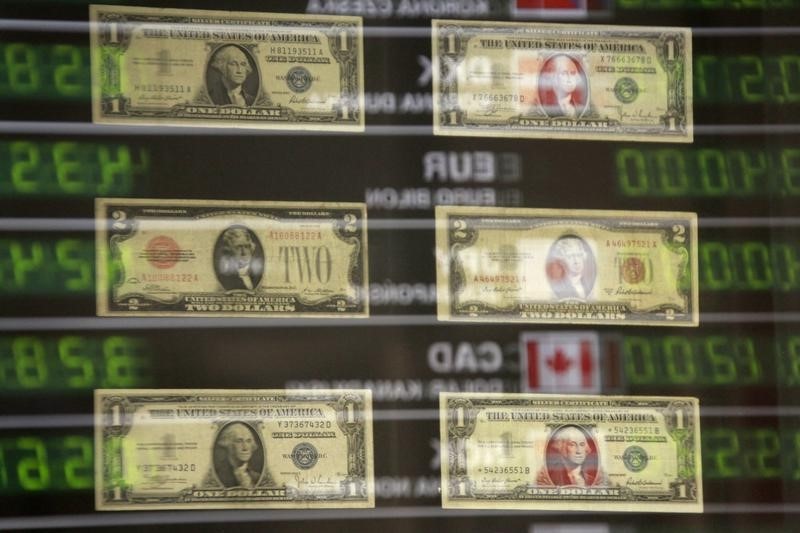Investing.com - The dollar was sharply lower against the other major currencies on Friday, capping its worst weekly performance against the euro in three years and posting the largest weekly decline against the yen and the Swiss franc in two months amid doubts over how quickly U.S. interest rates will rise.
The sharp drop in the dollar came about amid uncertainty over the path of U.S. monetary policy after the Federal Reserve downgraded its forecasts for growth and inflation and lowered its interest rate projections on Wednesday.
The Fed statement dampened expectations for a mid-year rate hike, prompting investors to exit positions which would benefit from a strong dollar.
EUR/USD was up 1.52% to 1.0820 late Friday. For the week, the common currency gained 3.2%, the largest increase since October 2011.
USD/JPY was down 0.64% to 120.03 in late trade, ending the week with losses of 1.06%. USD/CHF dropped 1.54% to 0.9747, for a weekly loss of 3.16%.
The U.S. dollar index, which measures the greenback’s strength against a trade-weighted basket of six major currencies, ended the week down 2.53%, posting the biggest weekly loss since October 2011.
The commodity-exposed currencies also strengthened against the greenback on Friday. AUD/USD surged 1.63% to 0.7774, NZD/USD jumped 2.04% to 0.7565 and USD/CAD lost 1.3% to trade at 1.2551.
Despite the past week’s reversal the dollar looks likely to continue to strengthen, with the Fed still expected to raise interest rates ahead of other central banks.
The euro has fallen around 10% against the dollar so far this year and the European Central Bank’s trillion-euro quantitative easing program, which launched earlier this month, is set to continue to act as a drag on the single currency.
In the week ahead, investors will be focusing on Tuesday’s U.S. inflation report after Fed Chair Janet Yellen warned last week that the stronger dollar was pushing down inflation.
Survey data on euro zone private sector activity, due for release on Tuesday, will also be closely watched.
Ahead of the coming week, Investing.com has compiled a list of these and other significant events likely to affect the markets.
Monday, March 23
The U.K. is to release private sector data on industrial order expectations.
The U.S. is to release a report on existing home sales.
Tuesday, March 24
China is to release the preliminary reading of the HSBC (LONDON:HSBA) manufacturing index.
The euro zone is to produce survey data on private sector activity, while Germany and France will also publish what will be closely watched individual reports.
Both the U.K. and the U.S. are to release reports on consumer inflation. The U.S. is also to release data on new home sales.
Later in the trading day New Zealand is to report on the trade balance.
Wednesday, March 25
In the euro zone, the Ifo Institute is to report on German business climate.
The U.K. is to release private sector reports on mortgage approvals and retail sales.
The U.S. is to publish data on durable goods orders.
Thursday, March 26
Research group Gfk is to publish a report on German consumer climate.
The euro area is to release data on private lending and M3 money supply.
The U.K. is to produce data on retail sales.
Later in the day, Bank of Canada Governor Stephen Poloz is to speak; his comments will be closely watched.
Friday, March 27
Japan is to release a string of economic reports, including data on household spending, inflation, unemployment and retail sales.
The U.S. is to round up the week with final data on fourth quarter economic growth and the revised reading of the University of Michigan consumer sentiment index.
